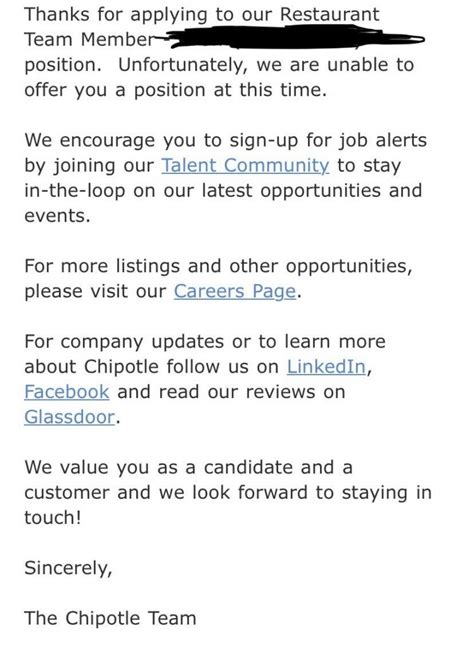Rescheduling Job Interviews Professionally: How-To Guide

Rescheduling a job interview can be a daunting task, but sometimes unforeseen circumstances arise that make it necessary. Whether it’s due to illness, a scheduling conflict, or any other valid reason, it’s important to handle the situation professionally and respectfully. In this guide, we will provide you with step-by-step instructions on how to reschedule a job interview effectively.
1. Assess the Situation
The first step in rescheduling a job interview is to assess the situation. Determine the reason why you need to reschedule and evaluate its urgency. If it’s a last-minute emergency, contact the employer as soon as possible to inform them of the situation. If it’s a non-urgent matter, you may have more time to plan and communicate your rescheduling request.
2. Review the Interview Invitation
Before reaching out to the employer, review the interview invitation you received. Check for any specific instructions or guidelines regarding rescheduling. Some employers may have a preferred method of communication or a designated contact person for interview-related matters. Following these instructions will help ensure a smooth rescheduling process.
3. Contact the Employer
Once you have assessed the situation and reviewed the interview invitation, it’s time to contact the employer. Reach out to the designated contact person via email or phone, depending on the preferred communication method stated in the invitation. Be polite, concise, and professional in your message, explaining the reason for the rescheduling and suggesting alternative dates and times for the interview.
Example:
Dear [Contact Person’s Name],
I hope this email finds you well. I am writing to inform you that I am unable to attend the scheduled interview on [date] at [time]. Unfortunately, [provide a brief explanation of the reason]. I sincerely apologize for any inconvenience this may cause.
I would like to propose [alternative dates and times] for the interview. Please let me know if any of these options work for you, or if there is a specific date and time that would be more suitable.
Thank you for your understanding and flexibility. I look forward to the opportunity to interview with [Company Name].
Best regards,
[Your Name]
4. Be Flexible
When suggesting alternative dates and times for the interview, it’s essential to be flexible. Consider the employer’s availability and try to offer multiple options that accommodate both parties. This demonstrates your willingness to work around any scheduling conflicts and shows your commitment to the interview process.
5. Confirm the Rescheduled Interview
Once you have reached an agreement with the employer regarding the rescheduled interview, it’s crucial to confirm the new date and time in writing. Send a follow-up email to express your gratitude for their understanding and confirm the details of the rescheduled interview. This helps ensure that both parties are on the same page and avoids any confusion or miscommunication.
Example:
Dear [Contact Person’s Name],
Thank you for your prompt response and understanding regarding the rescheduling of the interview. I appreciate your flexibility and willingness to accommodate my situation.
I am pleased to confirm that we have agreed upon a new date and time for the interview. The interview will now take place on [date] at [time]. I will arrive at the [Company Name] office ten minutes prior to the scheduled time.
Once again, I apologize for any inconvenience caused by the rescheduling. I am grateful for the opportunity to interview with [Company Name] and look forward to meeting with you and the interview panel on [date].
Should there be any changes or further instructions, please do not hesitate to let me know.
Best regards,
[Your Name]
6. Prepare for the Rescheduled Interview
After successfully rescheduling the interview, it’s important to thoroughly prepare for it. Treat it as you would any other interview and research the company, review common interview questions, and practice your responses. By being well-prepared, you can make a positive impression and increase your chances of success.
Conclusion
Rescheduling a job interview can be a stressful experience, but by following these steps, you can handle it professionally and effectively. Remember to assess the situation, review the interview invitation, contact the employer, be flexible, and confirm the rescheduled interview. By demonstrating your professionalism and adaptability, you can maintain a positive impression with the employer.
Frequently Asked Questions
1. Can I reschedule a job interview more than once?
While it’s generally best to avoid rescheduling a job interview more than once, unforeseen circumstances may arise. If you find yourself in a situation where rescheduling is necessary, communicate openly and honestly with the employer, and provide a valid reason for the request.
2. How much notice should I give when rescheduling a job interview?
Whenever possible, provide as much notice as you can when rescheduling a job interview. This allows the employer to adjust their schedule accordingly and shows your respect for their time. In cases of last-minute emergencies, contact the employer as soon as possible to inform them of the situation.
3. What if the employer is not able to accommodate my rescheduling request?
If the employer is unable to accommodate your rescheduling request, remain professional and understanding. Apologize for any inconvenience caused and ask if there are any alternative options available. If rescheduling is not possible, consider whether you can attend the interview as originally scheduled or if it’s necessary to withdraw your application.
